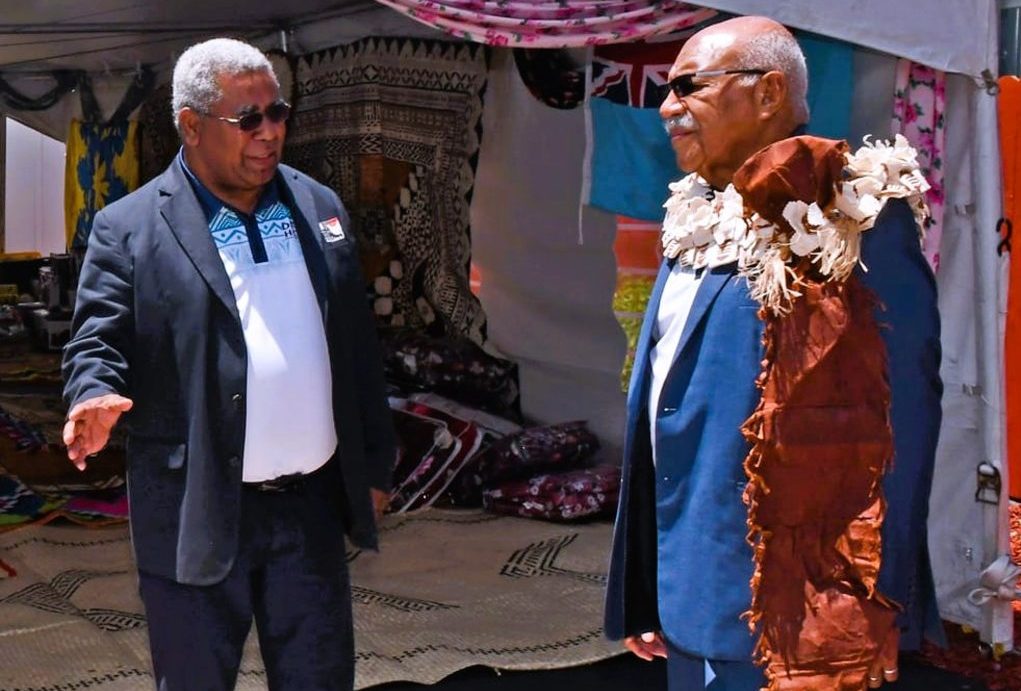THE Divine American Group’s (DAG) piggery and dalo farm at Bau Tikina in Tailevu is fast becoming one of Fiji’s growing commercial ventures and is a symbol of indigenous Fijian enterprise powered by vision, quality and community empowerment.
The company, a branch of the parent Divine Fiji Group (DFG) based in Santa Rosa, USA, was founded by Poasa Koroitamana. Today, his son, Emosi Koroitamana, leads the Fiji operations, focusing on sustainable piggery and crop farming that promise both social and economic impact.
“Our major commodity here is piggery,” Mr Koroitamana explained during a visit to the farm by The Sunday Times.
“We currently have 55 sows (female), three boars (male), and one completed shed. The plan is to have six sheds altogether.”
The farm sits on 56 acres of native lease land, where the team has also planted 48,000 dalo since February. But the venture is not about mass production alone, it’s also about producing high-quality pork and root crops that can compete locally and abroad.
“Our focus is not on quantity,” he said.
“We are basically focusing on quality, producing the best pork and dalo possible.”
A response to Fiji’s pork
shortage
The idea behind the venture took shape when the team recognised Fiji’s growing reliance on imported pork.
“More than 50 per cent of the pork supplied to our hotel industry is imported,” Mr Koroitamana said.
“We started small, just three sows, and now we’re moving towards a full-scale operation that will supply both social and commercial needs.”
The first shed took six months to complete, with assistance from the Ministry of Agriculture.
By 2027, the company aims to have all six sheds operational to meet local demand and export to the region.
Monthly expenses which total around $20,000, including labour, materials, and fertiliser. The project is supported by investment from the parent company in the US with further costs supplemented by government grants.
From farm to table
Long-term plans include establishing a processing plant, butcher, and restaurant under the company’s brand, a farm-to-table model ensuring total control over quality.
“We want to have a butcher and a restaurant, with quality controlled from the farm,” Mr Koroitamana said.
The company also plans to diversify by offering farm-to-table experiences through Airbnb stays for senior citizens from the United States.
“We want to give them quality pork, quality root crops, and vegetables, all produced here,” he said.
Blending modern and traditional farming
A balance between innovation and sustainable is at the heart of Divine American Group’s approach to farming.
While not entirely organic, the team limits fertiliser use to preserve natural flavour and soil health.
“Our fertiliser application is not overdone,” Mr Koroitamana said. “We’re blending in, not fully organic, but focused on taste and balance.”
The farm currently grows multiple dalo varieties, including magiti, bavia, uronivonu, jabeni, and belo, with some targeted for export.
“When you come to buy pig, we’ll also supply you with Magiti dalo at a very favourable cost,” he said.
On the livestock side, the company sources its breeding stock from established farms such as Waianitu and Vuda, using Large White and Land Race breeds known for quality meat production.
Empowering local
communities
A cornerstone of the Divine American Group’s philosophy is empowering local workers.
The farm employs a mix of permanent and project workers, 12 in total, from surrounding communities.
“We’re not here to use people; we’re here to empower people,” said Mr Koroitamana.
“We treat our staff as family and support them not just at work but in their social needs as well.”
He emphasised that the company’s commitment to local employment means there are no plans to recruit overseas labour.
“We want to show that Fijians can do this , that we can build and sustain something meaningful right here,” he said.
Positive outlookMr Koroitamana believes Fiji’s piggery sector looks bright , even though only a few farms currently operate at large scale.
“There are only three main pig farms in the country that raise over 1,000 stocks, Vuda, Waianitu, and Naboro,” he said.
“By 2027, we aim to join that list and showcase what Divine American Group Farms can do, from selling pork and root crops locally to supplying the region.”
For him, success begins with passion and perseverance.
“Whatever you do, you must have interest,” he said.
“This environment is not for everyone. It has physical and mental challenges, but with trust, teamwork, and faith, it’s possible.”
The farm’s journey from bushland to a thriving agricultural hub in just over a year reflects that belief, a story of indigenous Fijian resilience and determination to feed the nation while creating opportunities for its people.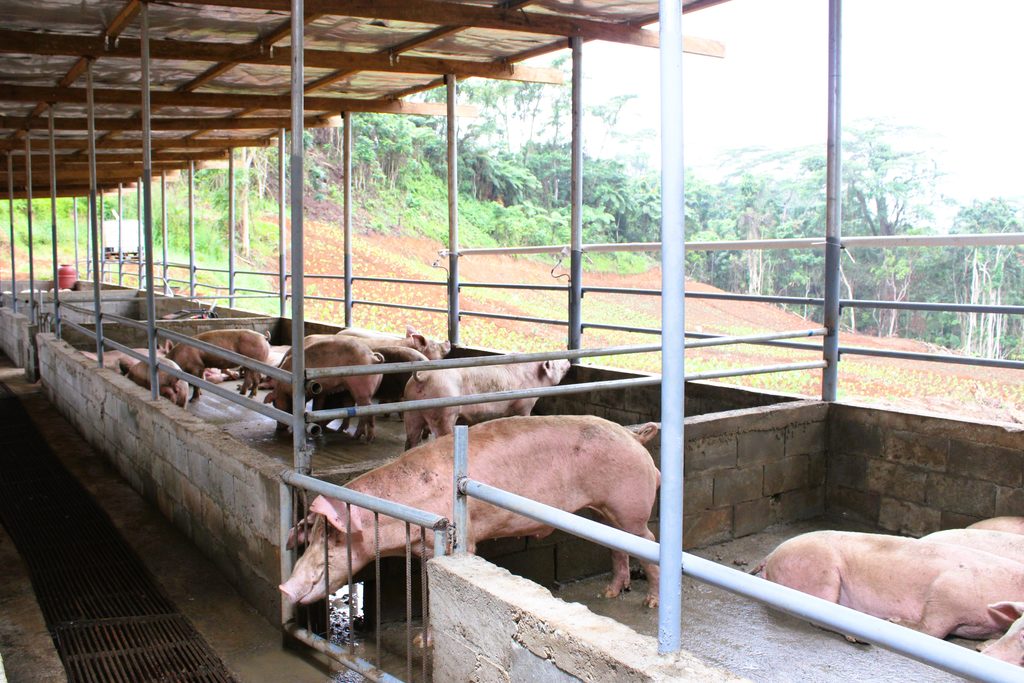
The DAG piggery.
Picture: ALIFERETI SAKIASI
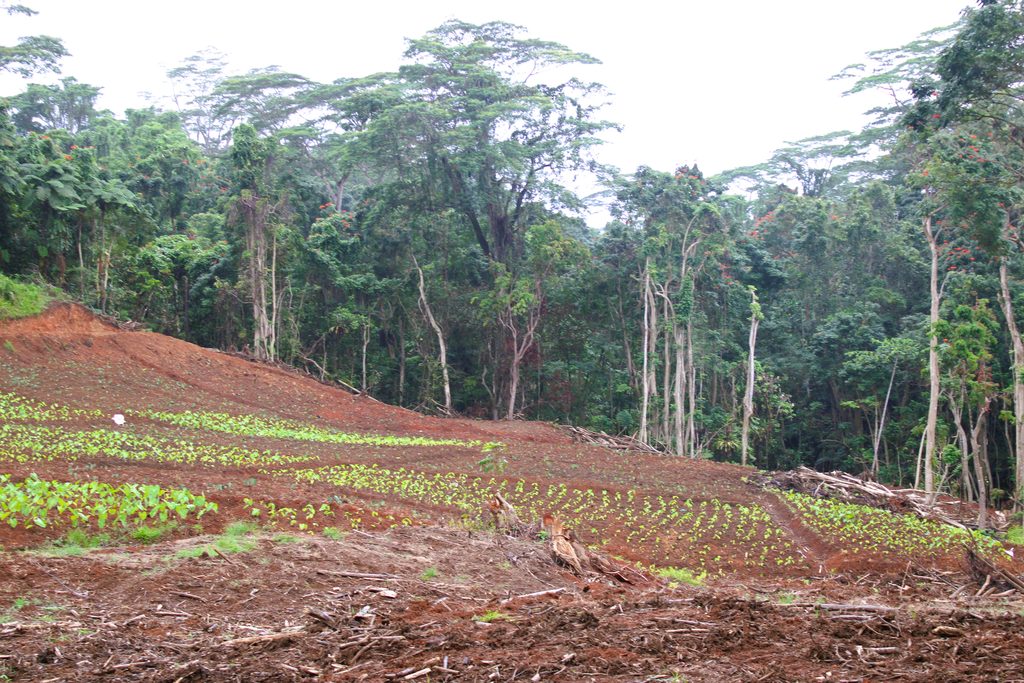
48,000 dalo tops have been planted and are awaiting harvest. Picture: ALIFERETI SAKIASI
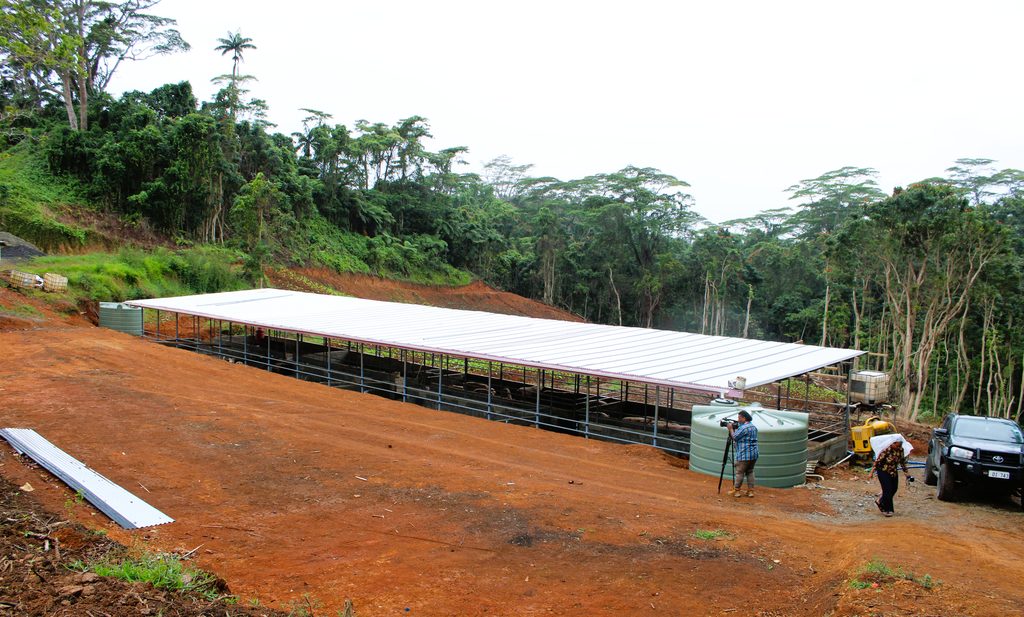
The DAG piggery shed with spaces being cleared for six more sheds. Picture: ALIFERETI SAKIASI
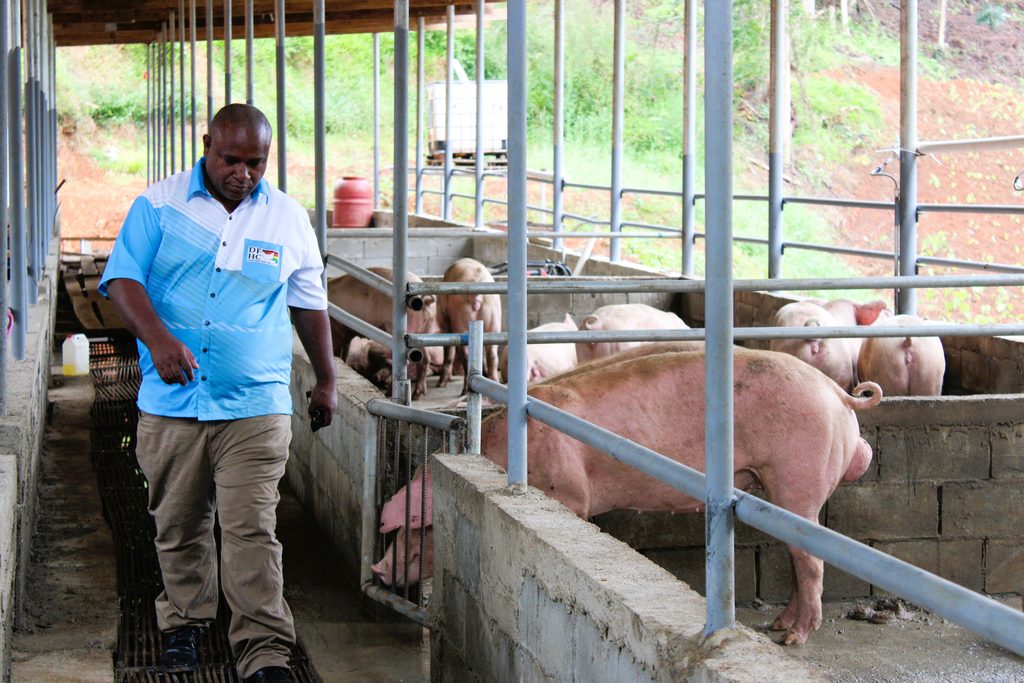
Jone Koroitamana inspects the piggery shed at the DAG farm at Bau Tikina, Tailevu. Picture: ALIFERETI SAKIASI
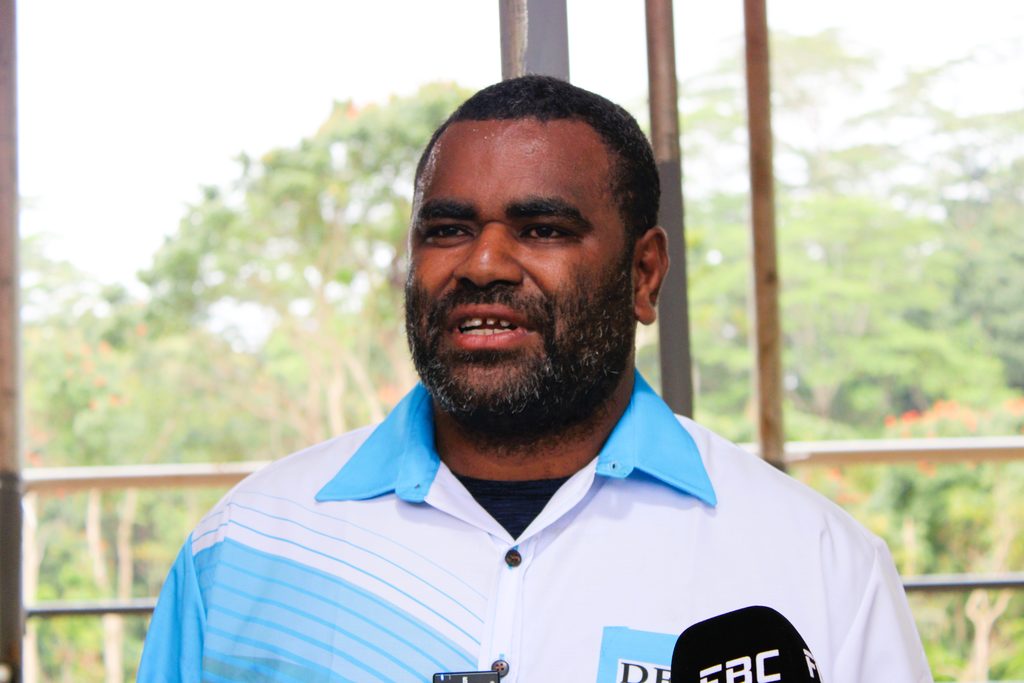
DAG director, Emosi Koroitamana.
Picture: ALIFERETI SAKIASI

